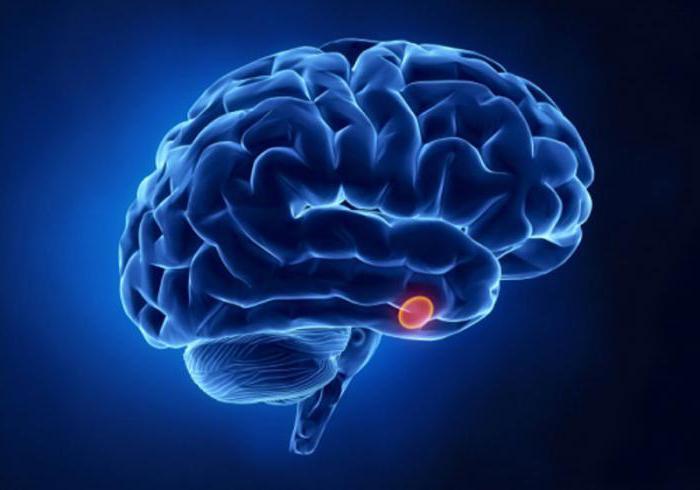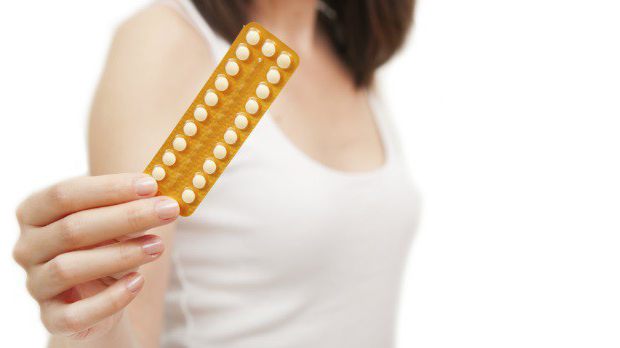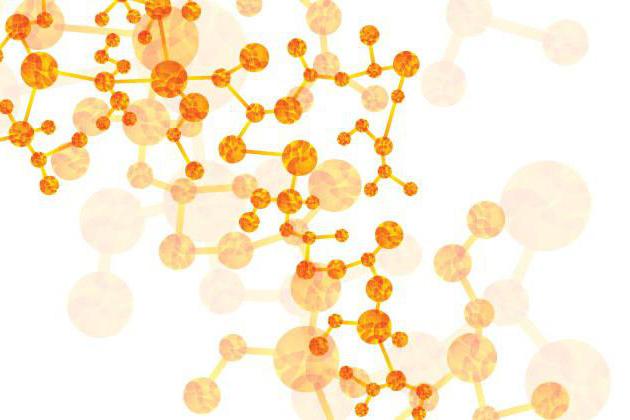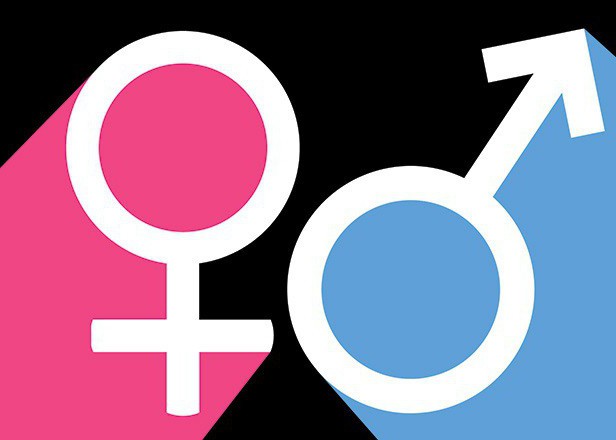Types of hormones and their functions
In the article we will talk about the types of hormones, and we will also consider what they are and what functions they perform. After reading, you will learn to understand this issue and understand the effect of hormones on human life and health.
What is this about?
What are hormones? These are substances that are produced by certain cells of the body in the endocrine glands. They enter the bloodstream and thus have a strong influence on physiological processes and metabolism. In fact, these substances are the regulators of most of the phenomena occurring in the human body.
History
Before talking about the types of homones, let's talk about the history of the discovery of these important substances. The study of them and the endocrine glands was started by physician T. Addison in 1855. Another scientist who began the study of endocrinology is the Frenchman K. Bernard. Later, this branch was studied in detail by S. Brown-Sekar, who revealed the relationship between diseases and insufficiency of certain glands. It has been proven that the various ways and types of action of hormones can indeed have an impact on health.
Modern research confirms that too active or passive work of the glands adversely affects human health and causes diseases. For the first time the term "hormone" was used in the works of physiologists E. Starling and W. Bayliss in 1902.
Functioning
Any external or internal stimuli affect the receptors of the body and cause impulses that are transmitted to the central nervous system, and then to the hypothalamus. It is there that active substances are produced that are transported to the pituitary gland. They contribute to a faster or slower production of tropic hormones, on which the synthesis of the desired compounds depends. After that, the substance is transported to the organ or tissue of the body through the circulatory system. This causes certain chemical or physiological reactions in the body.
Types of human hormones
What are the varieties of these substances? Despite the fact that modern science has sufficient information about the chemical composition of each hormone, their classification is still not considered complete. You can verbally designate a hormone based on its structure or chemical name, but the result will be a large and difficult to remember word. That is why scientists tacitly agreed to use simpler names.
The most popular anatomical classification, which correlates the substance with the gland in which it is produced. According to this criterion, hormones of the adrenal glands, pituitary gland, hypothalamus, etc. are isolated. But such a classification is not particularly reliable in view of the fact that a compound can be synthesized in one gland, but completely different is released into the blood.
Because of this, scientists decided to develop a single system that would be based on the chemical composition of active substances. That is why in the modern world hormones are divided into:
- protein-peptide;
- derivatives of amino acids;
- arbitrary polyunsaturated fatty acids;
- steroids.
Steroid hormones are substances of a lipid nature that have a sterane core. They are synthesized in the ovaries and testicles from cholesterol. Hormones of this type perform the most important functions necessary for the normal functioning of the human body. So, the ability to give the body the necessary shape, as well as reproduce offspring, depends on them. This class includes androgen, progesterone, dihydrotestosterone and estradiol.
Fatty acid derivatives can affect the cells of the organs that produce them. This class includes prostaglandins, thromboxanes, etc.
Amino acid derivatives are synthesized by several glands. The basis of their creation is tyrosine. This class includes melatonin, epinephrine, thyroxine and norepinephrine.

Protein-peptide compounds are responsible for the regulation of metabolism in the body. The most important element for their synthesis is protein. This group includes insulin and growth hormone.
Role
We examined the main types of human hormones, but did not pay attention to their role. And at the same time, the life path of a person cannot be imagined without these important substances. They are involved in every process that occurs in the body. So, thanks to hormones, each person has his own weight and height. The substances discussed have a huge impact on the emotional state, stimulate the natural processes of decay and cell growth.
At the same time, they take part in stimulating or suppressing the immune system. Metabolism is also directly dependent on the level of certain hormones in the body.
Women
The types of hormones in the body are different, but in women they are specific. An important substance for the fairer sex is estrogen, which is synthesized in the ovaries. Thanks to him, the menstrual cycle is regular. Also, this hormone causes the formation of secondary sexual characteristics. This substance during puberty allows the body to prepare for motherhood and future sexual life. Thanks to this substance, an adult woman retains youth and beauty, the good condition of her skin and a positive attitude towards life. If estrogen is normal, then the woman feels good and very often looks younger than her peers, who have a hormonal imbalance.
Types of sex hormones are interesting in that they can trigger "natural" mechanisms. So, estrogen is responsible for women's feelings - to babysit children and protect their home. But at the same time, we note that this substance has a calming effect. Therefore, it is taken by aggressive men in prisons. Also, this hormone can improve memory. That is why women during menopause often begin to have difficulty remembering. But the disadvantage for many women of this hormone is that it forces the body to accumulate fat. This is essential for women's health.
The second female hormone is progesterone. It contributes to the normal onset and course of pregnancy. It is produced by the adrenal glands and ovaries. It is also called the hormone of parental instinct, because thanks to it, a woman is physiologically and psychologically prepared for motherhood. Interestingly, the level of this hormone in the blood rises at a time when the girl sees small children.

The next hormone we'll look at is called prolactin. It is produced in the pituitary gland and is responsible for the growth and development of the mammary glands, milk production during feeding. Also, this hormone is called stress, as its amount increases with overwork, physical exertion or psychological trauma.
male hormones
There are few types of male hormones. The main one is testosterone, which is produced by the testicles and adrenal glands. It is also called the hormone of aggression, as it makes a man kill and hunt. Thanks to this substance, representatives of the strong half of humanity have an instinct to protect and provide for their home and family. In order for this hormone to be normal, a man needs regular physical activity. During puberty, the level of this substance rises greatly. Thanks to him, men grow a beard, and their voice becomes low.
Thyroid
What other types of hormones are there? The thyroid gland produces thyroxine, thyrecalcitonin, triiodothyronine. The first is responsible for the metabolism and excitability of the nervous system. Triiodothyronine is responsible for the same indicators as thyroxine, enhancing them. At the same time, we note that the lack of thyroid hormones in childhood threatens to delay physical and mental development. In adults, with hypofunction, lethargy, apathy and drowsiness are observed. With an excess of hormones, increased arousal and insomnia are observed. And the last hormone, thyrocalcitonin. It is responsible for the exchange of calcium in the body, reducing its level in the blood and increasing it in the bone tissue.

The parathyroid glands also produce parathyrin, the level of which increases with a decrease in calcium levels. We looked at the types of hormones and their functions. Now you understand why thyroid hormones are incredibly important for the body. It is no secret that this body is a real protector.
Pituitary
Now we will consider what types of hormones the pituitary gland produces. Growth hormone is a somatotropin that is responsible for the physical development and growth of the human body. It affects the increase in the size of the whole organism, stimulates the work of muscles and at the same time prevents the deposition of fat. Moreover, if there is a lack of this hormone, then the person suffers from dwarfism, and otherwise - gigantism. Then acromegaly can occur, which is characterized by increased production of somatotropin in adulthood. Because of this, some parts of the body grow, but the bones may lose their ability to elongate.
The next hormone we'll look at is prolactin. We have already talked about it above, but we will repeat it again. It is responsible for lactation, the menstrual cycle and the mammary glands. The next pituitary hormone is thyrotropin. Its main task is to stimulate the synthesis of thyroxine. Another substance that we will consider is corticotropin, which is involved in stimulating the adrenal glands and the formation of cortisol. However, an excess of this hormone can lead to Cushing's syndrome, which is characterized by fatty deposits in the upper body, general weakness, and a moon-shaped face.
Gonadotropins stimulate the maturation and development of sperm and eggs. Oxytocin is responsible for the normal course of childbirth, and also improves the overall psychological state of a person. Vasopressin protects the body from moisture loss by absorbing it into the kidneys and storing it. If the posterior lobe of the pituitary gland is destroyed, then a person develops the disease diabetes insipidus, which is characterized by the loss of a huge amount of water.

Pancreas
We have considered almost all types of human hormones, except for pancreatic substances. It produces glucagon, which increases the amount of glucose in the blood and promotes the breakdown of sugar. Also, the pancreas synthesizes insulin, which lowers blood sugar and promotes glucose through the cell, making it a "building material". If the body lacks this compound, then a disease such as diabetes mellitus develops. The main symptoms are itching, profuse urination and intense thirst. If the disease is not treated for a long time, then it is manifested by pain in the limbs, decreased appetite, visual impairment, and even coma.
adrenal glands
There are hormones that affect certain types of metabolism. These include substances that are produced in the adrenal glands. These are cortisol, adrenaline and aldosterone. The first hormone is produced in large quantities during a stressful situation. It activates the defense process, the activity of the heart muscle and the brain. When cortisol levels rise, the belly, back, and back of the neck begin to gain more fat. At the same time, a strong decrease in the level of the hormone leads to a weakening of the immune system, and as a result, a person often gets sick as a result.
It is necessary to urgently consult a doctor in such cases, as this can lead to adrenal failure. Adrenaline is a hormone that causes feelings of danger and fear.

In this case, a person's blood sugar level rises, breathing quickens, and vascular tone increases. Thus, a person is prepared to the maximum for physical and mental stress. However, if there is too much of this hormone, then it can dull fear, which is fraught with consequences. Aldosterone regulates the water-salt balance. It affects the kidneys, giving them a signal about which substances should be left in the body and which should be removed.
We examined the types of male and female hormones, and now let's talk about the hormone of the pineal gland. This is melanin, which is responsible for the rhythms of the body, the sleep cycle and the deposition of fat. Also, everyone from school knows that this substance is responsible for the color of the skin and hair.
Taking hormones to achieve certain results
Now let's talk about the consequences of taking hormones for beauty. Very often, women decide to take such a step in order to achieve certain results and change their appearance. But the fact is that you can take such substances only as directed by a doctor. In the modern world, any information can be found on the Internet, so some girls decide to entrust their health and life to couch critics. After reading different opinions, they go to the pharmacy and buy drugs that sometimes even lead to paralysis. In no case should this be done, since even a doctor cannot always objectively say whether the hormone will harm or not.
The types of action of hormones are different, which is why if hormone therapy is needed, then you need to consult only with a qualified specialist who has been dealing with such issues for a long time. And even so, it is difficult to say how the body will behave when exposed to certain substances. We must understand that our body is not a mechanism, but a living system that actively responds to stimuli.
Balance
We examined the types of female hormones. From this, many understood how important they are. However, these substances play a key role in the health of absolutely all people. Therefore, you need to know how to establish hormonal balance. It is quite easy to do this by adjusting your lifestyle.
Firstly, it is very important to observe the daily routine. Only under this condition will a balance be established between rest and work. For example, when a person falls asleep, somatotropin is produced. If you fall asleep every day at completely different times, then this leads to a failure in the production of this substance. This is just one example, but it is clear how the daily routine affects the entire system.

It is also very important to stimulate the production of active substances through physical activity. 2-3 times a week, be sure to do fitness or dancing. But equally important is a balanced diet, in which there should be a sufficient amount of protein.
A very important factor that is often forgotten is the drinking regimen. For health, each person needs to drink about 2-2.5 liters of water per day. All this will help to establish hormonal balance. If these methods do not help, then intensive treatment is necessary. It is prescribed by a professional who studies the table of hormones and prescribes drugs containing synthetic analogues of human hormones.
